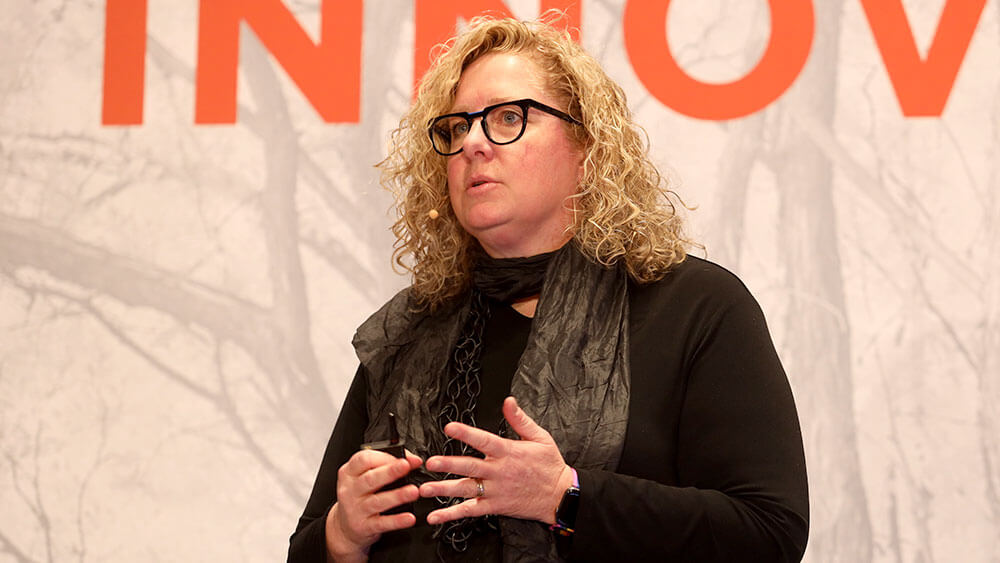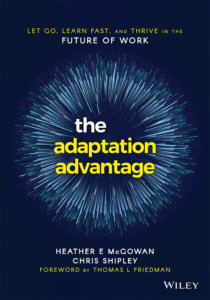
The COVID-19 pandemic has accelerated the rate future of work changes are happening, Heather McGowan says, from years to mere months. (Jacob Slaton Photography)
“It may feel as if work already has been changing at breakneck speed,” future-of-work strategist Heather McGowan told an audience at Convening Leaders 2020 in San Francisco, but when it comes to the pace of disruptions ahead — “buckle up.”
McGowan, co-author of The Adaptation Advantage, had a recommendation for Convening Leaders in response to rapid change: “Carve out time to learn,” she said. “It’s your future.” Those who thrive “will be those with the ability to learn, unlearn, and adapt.”
That was in January, before COVID-19 had become a pandemic. Since then, McGowan has updated her prediction on the rate of change. “Where we once saw the future of work unfolding over years,” McGowan wrote just two months later in an article for Forbes, “we now believe that with coronavirus as an accelerant, everything we’ve predicted about the future of work will unfold in months.”

The Adaptation Advantage: Let Go, Learn Fast, and Thrive in the Future of Work was published in April.
If the future of work requires restructured workplaces, redefined roles, rapid learning, and reserves of trust — and it does — “organizations,” she wrote, “are being challenged to do all that and more as they address the coronavirus pandemic. While we have long spoken about VUCA (volatile, uncertain, complex, and ambiguous) environments, we are finally and undoubtedly facing one.”
We revisited our interview with McGowan and two key elements of her presentation that are especially relevant to navigating the crisis — developing an agile learning mindset and leading from within an empathetic, creative culture. You can find the full McGowan interview here.
What is the difference between speed and agility?
Speed is how fast you are going while agility is how quickly you can change direction. My concept for the agile learning mindset focuses on that ability to change direction, which I think is more difficult than simply going faster in the same direction. Changing direction often involves letting go of old methods, unlearning, and relinquishing your occupational identity and your position as an expert.
You’ve identified vulnerability, creativity, and empathy as essential skills. Can you talk about the role that they play in the future of work?
Creativity, empathy, and vulnerability are hard to automate — they simply do not lend themselves to codification. Beyond that, and more importantly, these are the skills of modern leadership. If you take your existing work and strip away anything mentally routine or predictable, what is left is work that is in the volatile, uncertain, complex, and ambiguous (VUCA) realm.
This is work for which we need agile teams learning together. Leadership here is not about driving productivity or efficiency, it is about inspiring human potential and leading teams of humans into the unknown, into discovery. In order to do this, a leader must be vulnerable to both establish trust with the team but also to model the behavior of being comfortable not knowing, comfortable being wrong, comfortable failing or making errors and learning from them. If the leader pretends to know answers that she does not or masks a gap in skills or knowledge, she signals to her team to follow her example and then you end up with a compromised team full of weaknesses. So, a leader who cannot show vulnerability creates team weakness. Doing things that have never been done before requires creativity. Or as Dr. Brené Brown says, “Vulnerability is the birthplace of innovation, creativity, and change.”
Barbara Palmer is deputy editor of Convene.
